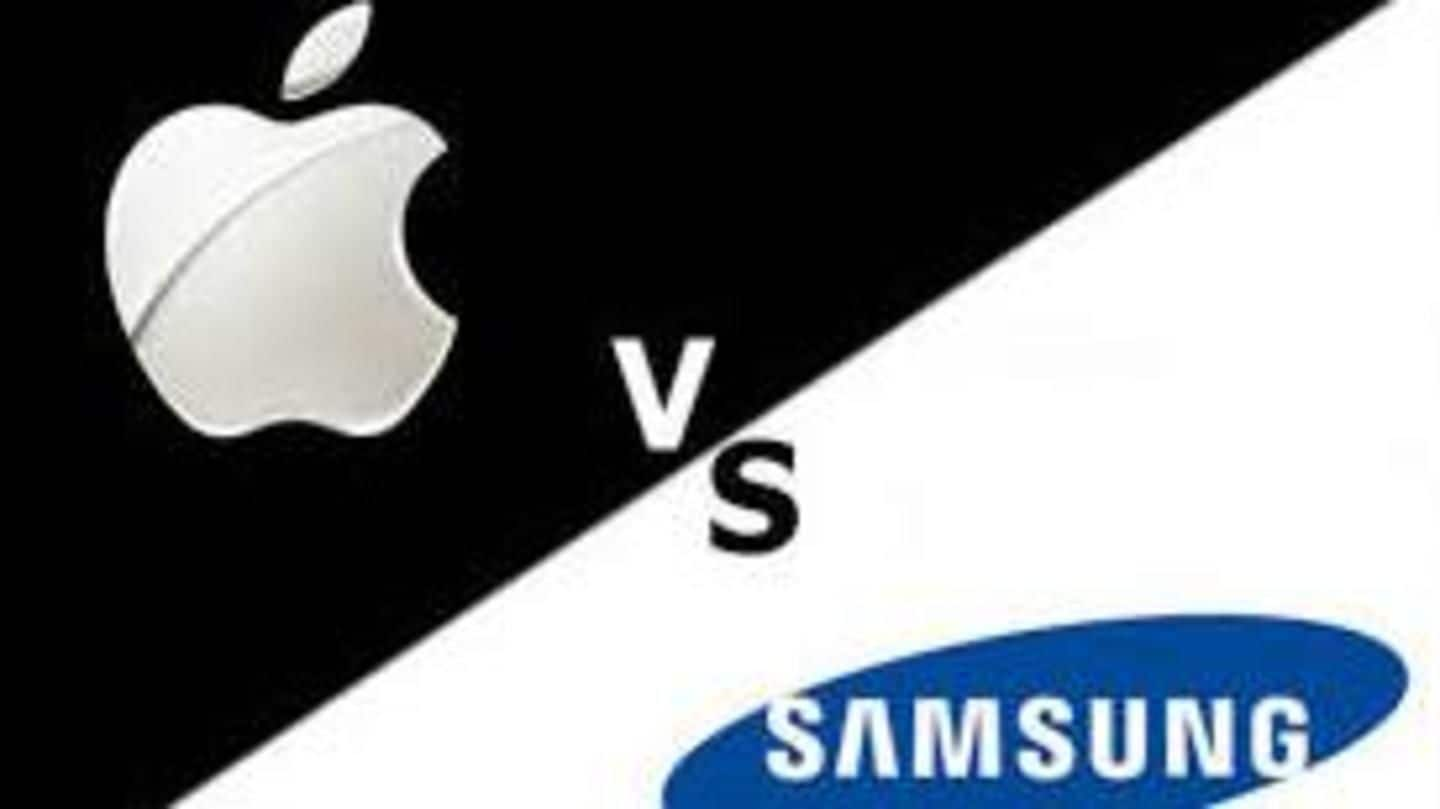
Apple seeking $1bn from Samsung in 7-year-old patent infringement dispute
What's the story
Apple is seeking $1 billion from Samsung in a long-running patent infringement case.
Samsung has allegedly infringed upon Apple's three design patents—quick links to phone numbers, the slide-to-unlock feature, and the auto-correct function—and two utility patents.
The seven-year-old dispute has been reopened in a US court in California. Here is more on the lawsuit.
Argument
Samsung made $1 billion profit from smartphones featuring Apple's designs
The amount of $1 billion is reportedly equivalent to the profit Samsung has made so far using Apple's designs.
Apple's lawyer Bill Lee said that Samsung made a total $3.3 billion in revenue and $1 billion in profit from selling smartphones that featured Apple's three patented designs.
And this is besides what Samsung has earned off Apple's two utility patents, Lee added.
Counter-argument
Amount to be paid as damages should be re-negotiated: Samsung
However, Samsung lawyer John Quinn is convincing the jury that the dispute settlement should be calculated based on profits made off the specific components that infringe Apple's patents, and not on total smartphone sales.
He argued that damages should be restricted to individual components because component design is a small part of a device which incorporates several other technologies and easily over 2,00,000 patents.
Information
Court to now determine what damages Apple can collect
The jury has to decide if Samsung should pay damages to Apple on the whole device or just the infringing components. Quinn said Apple is "seeking profits on the entire phone" when it is not entitled to profits based on everything "that's inside the phone."
Background
The legal dispute dates back to 2011
In 2011, Apple first sued Samsung. In 2012, the jury verdict was for Samsung to pay Apple $1.05 billion for infringing on Apple's three design patents.
In 2015, Samsung managed to bring down the compensation to $400 million. In 2016, the case went to the US Supreme Court.
Now Samsung is trying to further limit the settlement to $28 million.